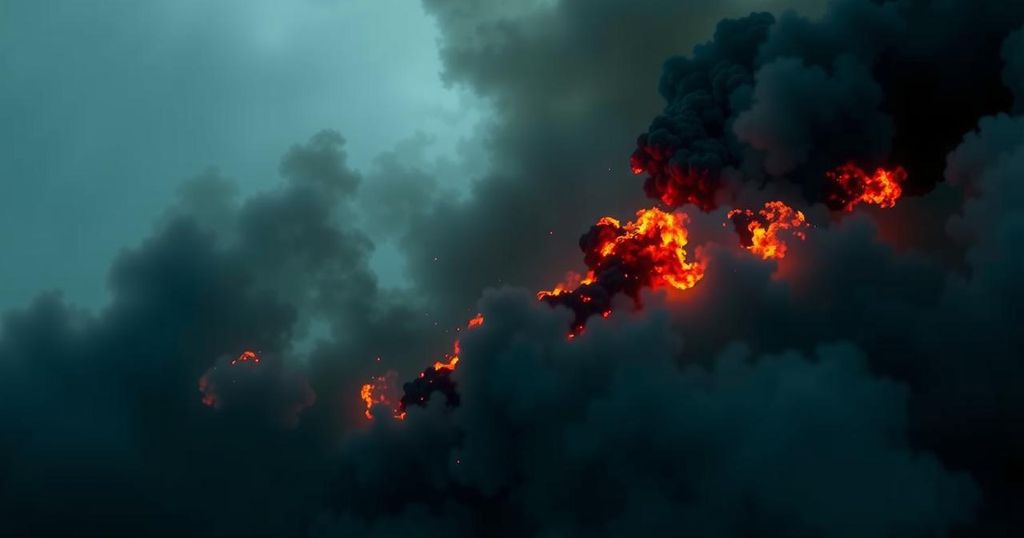Russia Vetoes UN Resolution for Ceasefire in Sudan Conflict

On November 18, 2024, Russia vetoed a UN Security Council resolution that sought to establish a ceasefire in Sudan where conflict has raged since April 2023. The resolution, proposed by Britain and Sierra Leone, faced strong opposition from Russia, which has become increasingly aligned with the Sudanese army. The ongoing war has resulted in tremendous humanitarian crises, with millions affected by severe food shortages and displacement. The effectiveness of UN responses is currently hampered by divisions among major powers.
On November 18, 2024, Russia utilized its veto power to block a UN Security Council resolution aimed at halting hostilities in Sudan, a country engulfed in conflict since April 2023. The resolution, drafted by Britain and Sierra Leone, called for immediate ceasefire negotiations between the Sudanese regular army, led by General Abdel Fattah Al Burhan, and the paramilitary Rapid Support Forces (RSF), commanded by General Mohamed Hamdan Daglo. British Foreign Secretary David Lammy condemned Russia’s veto, describing it as a “disgrace” and pinpointing Moscow as an obstacle to international consensus on the issue. The UN continues to grapple with internal divisions, significantly hampering efforts to address crises such as the one in Sudan.
The ongoing conflict in Sudan has resulted in devastating humanitarian consequences, claiming tens of thousands of lives and displacing over 11 million individuals. The UN identifies approximately 26 million people facing severe food shortages in the wake of escalating violence. Recent UN discussions express concern that both warring factions perceive themselves as likely to prevail militarily, consequently prolonging the conflict. Russia’s veto highlights its increasingly aligned stance with the Sudanese army, shifting from previous abstentions on related votes.
The draft resolution emphasized the necessity of preventing external interference, urged adherence to an arms embargo, and called for immediate humanitarian access to those affected by the conflict. Furthermore, it sought to ensure the protection of civilians and address issues related to conflict-related sexual violence. Despite the urgency of the situation, the efficacy of adopting such a resolution remains questionable, reflecting the complexity of international diplomatic efforts amidst ongoing hostilities.
The Sudanese conflict, which erupted in April 2023, is primarily characterized by the power struggle between General Abdel Fattah Al Burhan and General Mohamed Hamdan Daglo. This conflict has roots in the political turmoil following the 2021 coup led by Burhan. The war has led to significant humanitarian crises, resulting in high civilian casualties and massive displacement. The UN Security Council’s ability to respond effectively is often hindered by geopolitical tensions, particularly between permanent members like Russia and the United States, complicating the international response to such crises. The veto by Russia comes amidst a broader context of geopolitical rivalries where the UN’s role as a mediator is significantly challenged. Recent developments, including a U.S. policy shift regarding militaristic support to Ukraine, have further exacerbated divisions within the Security Council, impacting its collective response to other global conflicts, including that in Sudan.
The Russian veto on the Sudan ceasefire resolution underscores the deepening divisions within the UN Security Council, particularly amidst ongoing geopolitical tensions. This decision reflects Moscow’s evolving alignment with the Sudanese military, which raises concerns about further deterioration of the humanitarian situation in the country. With escalating violence giving rise to significant civilian suffering, including widespread food shortages, the prospects for peace negotiations appear increasingly bleak. The situation necessitates urgent international attention to address the complexities of Sudanese politics and the dire humanitarian implications of the ongoing conflict.
Original Source: jordantimes.com








